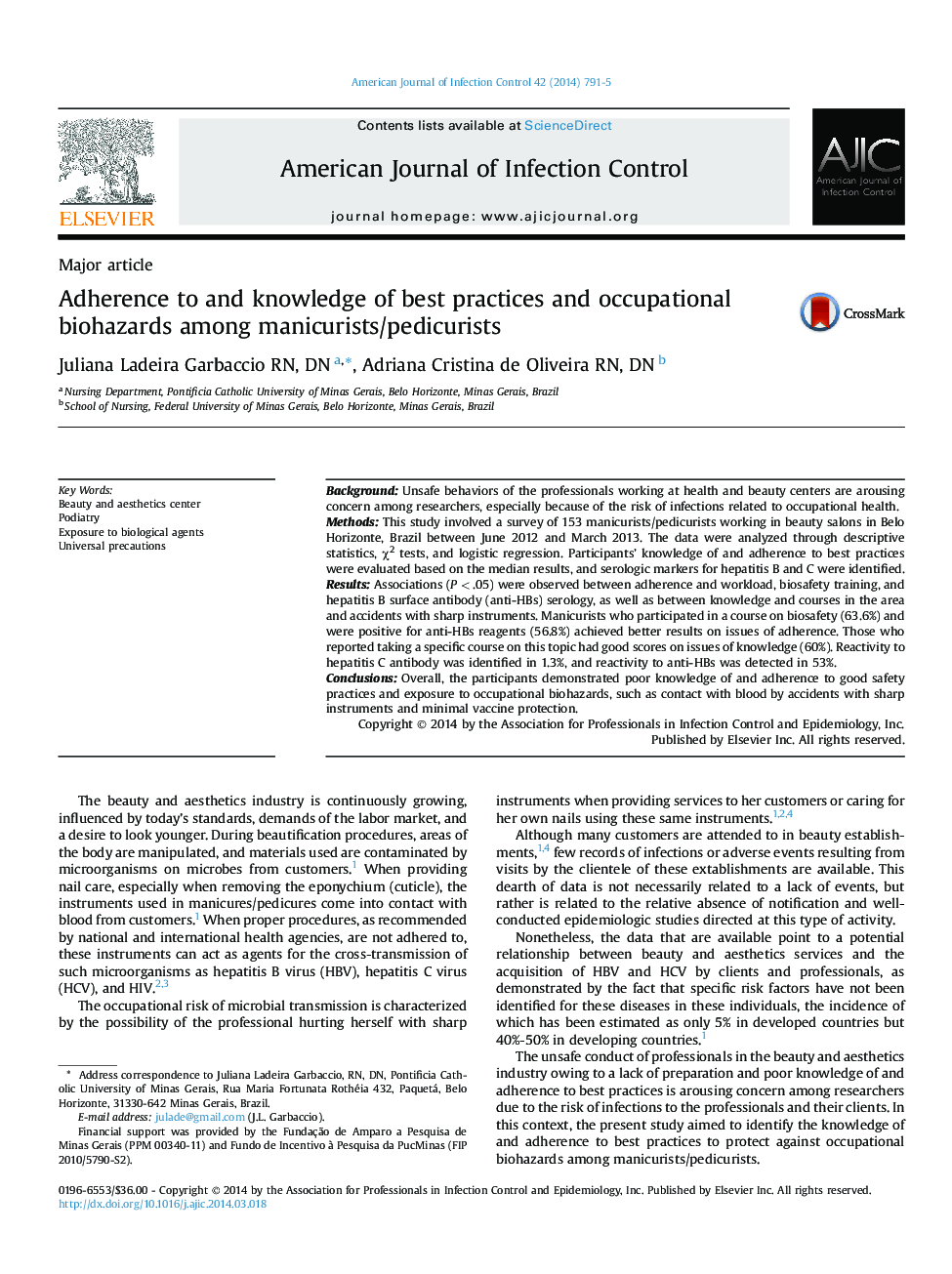| Article ID | Journal | Published Year | Pages | File Type |
|---|---|---|---|---|
| 2636975 | American Journal of Infection Control | 2014 | 5 Pages |
BackgroundUnsafe behaviors of the professionals working at health and beauty centers are arousing concern among researchers, especially because of the risk of infections related to occupational health.MethodsThis study involved a survey of 153 manicurists/pedicurists working in beauty salons in Belo Horizonte, Brazil between June 2012 and March 2013. The data were analyzed through descriptive statistics, χ2 tests, and logistic regression. Participants' knowledge of and adherence to best practices were evaluated based on the median results, and serologic markers for hepatitis B and C were identified.ResultsAssociations (P < .05) were observed between adherence and workload, biosafety training, and hepatitis B surface antibody (anti-HBs) serology, as well as between knowledge and courses in the area and accidents with sharp instruments. Manicurists who participated in a course on biosafety (63.6%) and were positive for anti-HBs reagents (56.8%) achieved better results on issues of adherence. Those who reported taking a specific course on this topic had good scores on issues of knowledge (60%). Reactivity to hepatitis C antibody was identified in 1.3%, and reactivity to anti-HBs was detected in 53%.ConclusionsOverall, the participants demonstrated poor knowledge of and adherence to good safety practices and exposure to occupational biohazards, such as contact with blood by accidents with sharp instruments and minimal vaccine protection.
